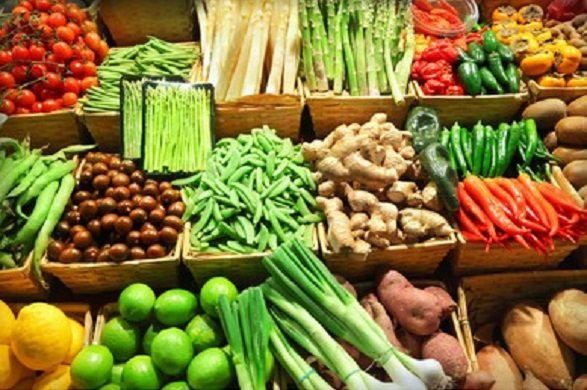Inside BENEO’s new pulse plant: pioneering sustainable protein from faba beans
It has been researched that the organic market in India stood at over Rs 1,200 crore last year and this year the market is likely to cross Rs 2,000 crore.
One of the most significant understandings for people across the world amidst the global crisis has been the requisites to build ‘strong immunity’ to safeguard against the deadly virus. This has proven to be a shot in the arm for the Indian organic food industry that has been growing at an accelerated pace. According to various industry researches, the global organic food market that stood at $110.25 billion in the year 2016, has over the years grown at a CAGR of 16.15 per cent, in value terms and is expected to reach up to $262.85 billion by the year 2022.
Going by the findings of various studies it has been researched that the organic market in India stood at over Rs 1,200 crore last year and this year the market is likely to cross Rs 2,000 crore. This noticeable mark-up is because the organic food demand has been rising steadily ever since the outbreak of the pandemic and in the wake of the lockdown.
A transparent future for the organic food chain
According to industry observers, there is a possibility of at least a 20-25 per cent increase in the compounded growth of organic food in India for the year 2020-21. Taking this estimate into consideration, the Indian organics market is predicted to grow at about Rs 3,000 crores even amidst an economic downturn. Under the current situation, the concerns for well-being and the environment will remain in precedence, and this will keep the organic food demand in a high orbit for the times to come.
The advent of technology has proved to be a game-changer
The consumer behavior patterns in favour of organic produce also appear to have become more deeply rooted and an embedded part of the consumer buying habit. To keep this surging demand intact, the retail world needs to confront a digital-first future. This applies chiefly to the organic foods market, which has long been relying upon the laurels of profitable revenue from the mandis or the counters and shelves of physical stores. Until recently, most of the industry’s key players have undervalued the impact, scale, and scope of the digital transition at hand. But for those who respond speedily, it’s not too late to catch the upcoming digital wave. Virtualisation is empowered to boldly recreate the appeal of the conventional physical retail experience by adopting a user-centred approach. If addressed effectively, the shift to digitalization has the potential to amplify customer acquisition and retention, even in such economically tough times. Moreover, a digitally allied and responsive food chain and technology-enabled food producers are central in modifying the industry to meet the country’s nutritional requisites.
Technology fixing the supply chain to enable fair-trade practices
Innovations like rapid use of precision data, smart farming, artificial intelligence and machine learning have proved to offer a herald of hope for farmers across the country. By building an autonomous marketplace that ensures that farmers/local vendors are an active part of the ecosystem eliminating the middlemen, can aid in sourcing ethical products which can further strengthen the chain of fair-trade practices. Technology has created a level playing field by connecting the producers with the buyers through the sale and exhibit of locally sourced organic products, ensuring that the community benefits. The future holds massive possibilities, and if used considerately, technology can encourage yet another revolution that will alter the face of India’s agriculture industry.
Online grocery procurement has been clicking with consumers amidst pandemic
The current crisis has led to an elevated level of mindfulness on the significance of chemical-free and organic nutrition that helps to improve immunity and build better well-being. As far as digitalisation is concerned, the Indian e-commerce market has been one of the major beneficiaries of the pandemic, as containment measures familiarised millions with the suitability of online spending.
During the global lockdown, the only way people could buy these products was through ordering them online. This has given an additional boost to organic foods in the e-commerce sector. This phenomenon has led to a new way of living. An organic, natural, and healthy lifestyle are the new normal.
Looking ahead, there is a great opportunity for the organic food market to take a big leap and corner a bigger share of the Indian grocery market. FBOs and entrepreneurs have a lifetime opportunity to come forward to fill in the gaps in the organic fruit and vegetable and other organic categories and meet the fast-growing and unfulfilled needs of this expanding market.
Narendra Firodia, Co-founder, YouCare Lifestyle

